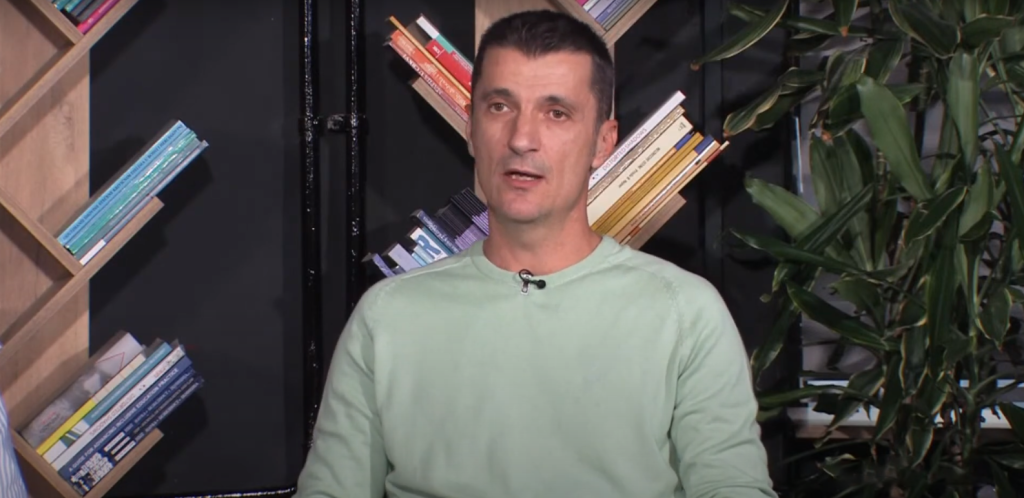
Source: klima101
Author: Jelena Kozbašić
The upcoming winter will be a serious test for the energy system, but the consequences will be felt most by citizens who are in a state of energy poverty, agreed the participants of the panel discussion “Energy poverty in times of crisis”, held on September 27, organized by the Climate Forum.
While reminding that Serbia has adopted its own definition of energy poverty, Mirjana Jovanović from the Belgrade Open School added: “The energy vulnerable customer was for a long time the only mechanism that recognized people in energy poverty.” It subsidizes the price of electricity and gas, and we know that the most vulnerable households are heated with solid fuels, primarily wood and coal. There are no subsidies for these fuels, so this measure is not adapted to the most vulnerable. In addition, subsidies were introduced for building rehabilitation measures, with 50% participation by citizens, but again, if we look at the definition of an energy-vulnerable customer, and if someone has an income of less than 16 or 24 thousand dinars, he can hardly participate with a few thousand euros in the renovation of our own facility.”
The current situation with energy products on the market was briefly described by Marko Janjušević, director of PC “Toplana Priboj” saying: “The prices of energy products have increased significantly.” Coal and wood double – and electricity even 10 times.”
As the current price of electricity for citizens and the lack and price of other energy sources affect changes in the way of consumption, commented Aleksandar Macura, program director of RES Foundation: “With such a subsidized price, electricity is part of the same price market as coal and wood.” Today, it is by far the cheapest to heat with electricity, and many people will resort to heating and reheating with electricity, and all of this is now, more than in previous years, a threat to the stability of the energy system. All energy products are paid by all taxpayers, us today, and our children – tomorrow. If we are already going to socialize these costs, then let’s invest in infrastructural change – as much as possible. We may not be able to do everything at once, but we can do at least 50 times more than before. If we were to replace all 100,000 individual low-efficiency burners and invest in new, more efficient devices, it would cost around 400 million euros. Until yesterday, that was unthinkable, but with today’s price we pay for importing electricity, it is no longer the case.”
Despite the existence of data on air pollution and pollution sources, decision-makers did not deal with the data too much: “Public policies did not link energy poverty and air pollution, although there is data on the origin of pollution. The largest part of particle pollution, in addition to industry, comes from individual furnaces and heating plants smaller than 50MW. When we look at the structure of households, 60% use inefficient solid fuel appliances, and from the economic side, most of them belong to energy-poor households. Thus, air pollution comes from vulnerable households that do not have the money to afford efficient devices, a new facade, carpentry, and use the energy sources that are available to them and that are the cheapest,” said Mirjana Jovanović.
Assistance to the most vulnerable citizens is solved most efficiently in local areas and in cooperation with the Centers for Social Work. One of these examples is Priboj. “Last year, we subsidized the replacement of individual fireplaces. 5 million was invested and 61 fire pits were replaced. We bought another 15 for the socially disadvantaged who cannot finance it themselves. Thus, on the replaced 76 burners, we immediately noticed that the replacement had an effect, in the air itself it was evident that there was less pollution. It is a long-term solution, given that twice as much firewood will be consumed now than was the case before.” – said Marko Janjušević, and Aleksandar Macura added: “Centers for social work know best their users and energy assistance vulnerable households must go with their assistance. You shouldn’t even try otherwise! In this way, it is also the fastest way to implement relief measures and do something in the period we have left until winter. What Priboj did is a good example and should be replicated as much as possible. The devices that were replaced by the citizens come from a domestic company that has mastered the eco-design of these devices, and if they exist in condition, these devices must be installed immediately.”
“We all talk about savings, but people have been saving up until now. Only those who use central heating and pay per square meter cannot save. I don’t know anyone who didn’t save energy, but had the opportunity to save. By reducing the heating temperature by one degree, about 6% of the required energy can be saved. If we lower the temperature by 3 degrees, we can save almost 20%. Of course, this is only possible if the initial temperature is 20-22 degrees. If the initial value is 15 degrees, then that is not possible,” said Marko Janjušević.
“The problem of energy poverty is not a household problem, it is a social problem. The problem of all of us. That’s why it is necessary for institutions to approach solving this problem, in order to help vulnerable households”, said Mirjana Jovanović and added: “We got energy saving measures, but people in a state of energy poverty cannot save, they are already saving everything they can. Further austerity, for them, leads to freezing – that is not an option.”
The full recording of the panel discussion is available at: https://www.youtube.com/watch?v=wrTQbku6O5Y.
The panel discussion was conducted as part of the EKO-SYSTEM program Support for reforms in environmental protection implemented by Young Researchers of Serbia (MIS), with the support of Sweden.
